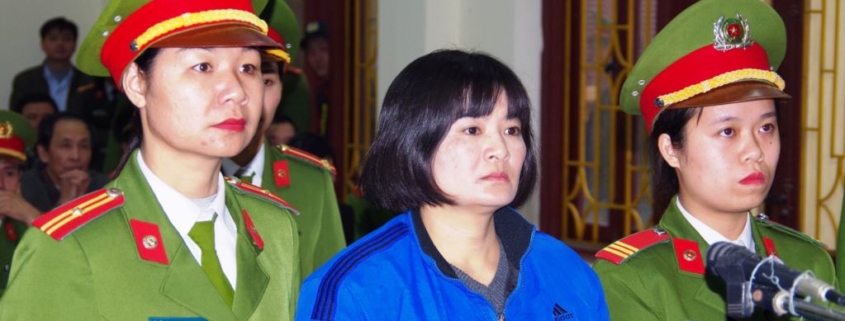Vietnam Free Expression Newsletter No. 43/2017 – Week of December 18-24
Greetings from The 88 Project! We are bringing you news, analysis, and actions regarding human rights and civil society in Vietnam during the week of December 18-24. Five activists were sentenced to between three and five years in prison each under Article 88 for making Republic of Vietnam flags, and Tran Thi Nga’s appeal of her nine-year sentence was denied. Two other prisoners, currently held in pre-trial detention — Luu Van Vinh and Nguyen Van Duc Do — may also face trial soon. Blogger Ho Hai, currently in pre-trial detention, suffers from poor health and harsh conditions in Chi Hoa prison. December 18 was the one-year anniversary of young blogger Nguyen Danh Dung’s arrest, and Nguyen Dinh Ngoc (Nguyen Ngoc Gia) nears the end of his three-year sentence. Several activists and Catholic communities were attacked this week by thugs and plainclothes police, including an incident of an intentional motorbike accident. Read news and analysis on the anti-corruption campaign in Vietnam and a mother’s plea for help over her son’s wrongful conviction. In case you missed it, retired military officer Tran Anh Kim is in failing health in prison. Please take action for Tran Thi Nga in light of her appeal denial.
This will be the final newsletter of 2017. We will return in early 2018. Happy Holidays and Happy New Year!
Read the full newsletter, here.
And please subscribe!
HUMAN RIGHTS & CIVIL SOCIETY
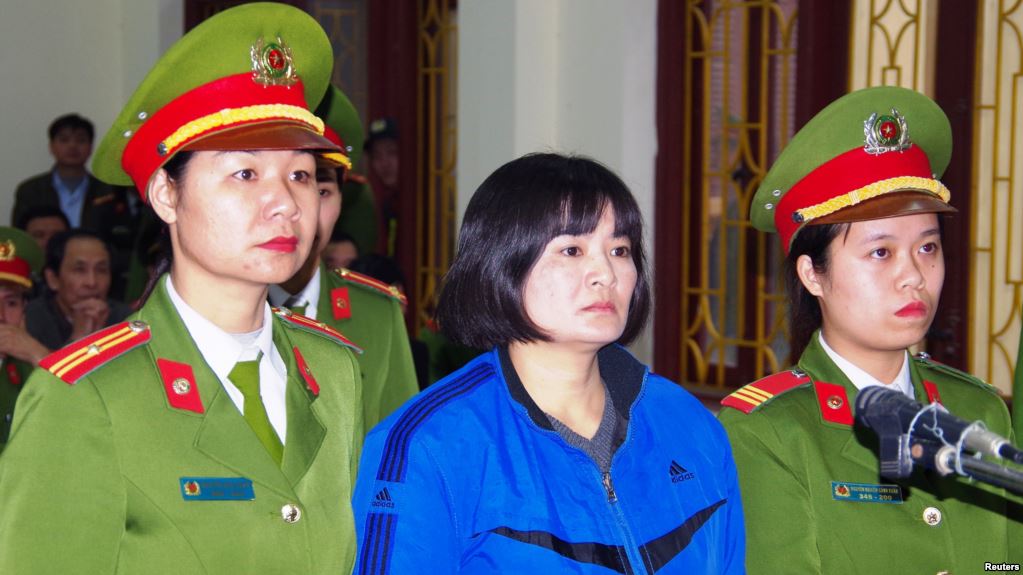

Blogger Ho Van Hai (a.k.a Doctor Ho Hai) was transferred from Phan Dang Luu detention center to Chi Hoa prison in early December. The transfer occurred suddenly, and unable to take his belongings, Dr. Ho Hai has had to sleep on the tiled floor without a mat for the past three weeks. The detention condition at Chi Hoa is harsher and more depriving, so Dr. Ho Hai’s health has deteriorated rapidly. He’s thinner and gaunter than before. In addition, the new prison strictly restricts the provision of supplies by the family, so he does not receive enough food and necessary medication. Blogger Ho Hai was arrested on November 2, 2016. Although it has been one year since his arrest, little information has been available on his detention, including formal charges against him.
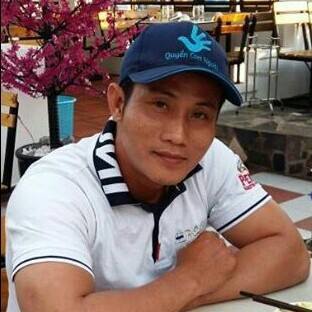
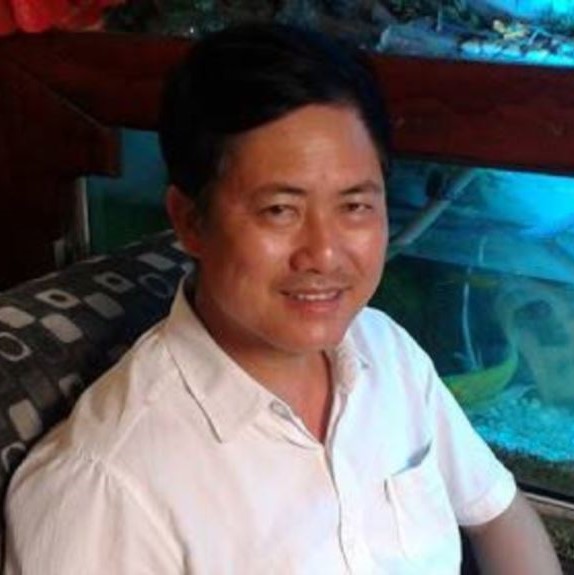
Nguyen Van Duc Do (left) and Luu Van Vinh (right)
Authorities have ended their initial investigation of Nguyen Van Duc Do, an electrician from Ho Chi Minh City. He was arrested on November 6, 2016 while visiting Luu Van Vinh, founder of the Coalition for Self-determined Vietnamese People, who was also arrested, though he claims that he has left the organization. Do was arrested for alleged ties to the group, which he denies, stating his only involvement is that of having a friendship with Vinh. Authorities have recommended Do be prosecuted under Article 79, and he is expected to face trial, along with Vinh, relatively soon.
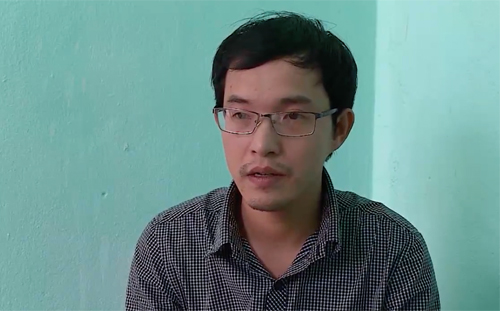
December 18 marked one year since blogger Nguyen Danh Dung was arrested. Twenty-nine years old at the time, Dung was arrested under Article 258 (“abusing democratic freedoms”) for posting videos critical of the government on YouTube and Facebook.
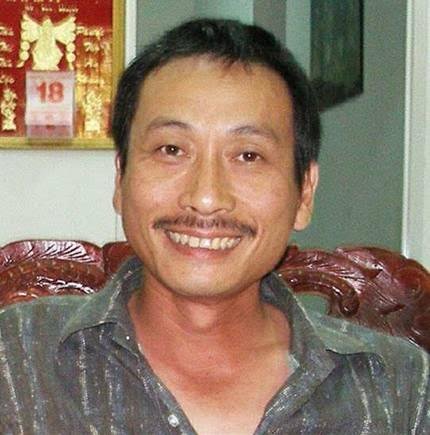
December 27 marks three years since blogger Nguyen Dinh Ngoc (Nguyen Ngoc Gia) was arrested. He was sentenced in March 2016 to four years imprisonment and three years probation under Article 88. He was a contributor to many websites, including Radio Free Asia. In October 2016, his sentence was reduced to three years. He reportedly suffers from health issues in prison and has spent time in solitary confinement. In accordance with his reduced sentence of three years and his time served in pre-trial detention, his release from prison should be imminent.
NEWS & ANALYSIS
Wrongfully Convicted Ho Duy Hai Languishes on Death Row: “The criminal law principle of corpus delicti requires a higher burden of evidence from the prosecution and provides that a defendant’s confession – on its own – is not enough for a conviction. Having credible physical evidence from the prosecution then becomes the determining factor in convincing a jury or a judge that the government has satisfied the burden of proof and that they have proved the defendant was, in fact, guilty of the crime charged. Vietnam follows this general rule in prosecuting criminal cases. Yet, such a rule only exists in law books and legal codes. In practice, people not only get convicted solely on their confessions but more often than not, they confessed because they were beaten and tortured by the investigating officers.”
Vietnam Widens Crackdown Amid Public Outcry Over Corruption: “Ordinary Vietnamese gripe about corruption – from bribes paid at routine traffic stops to shady land-use deals. For that reason, stories in the news about court cases against high-level corruption suspects get ample attention, scholars say. ‘They relish, because of the news publicity, tales of the high and mighty and their cars and villas, and they’ve got their comeuppance,’ said Carl Thayer, Southeast Asia-specialized emeritus professor at the University of New South Wales in Australia. Officials in Vietnam, he said, are ‘seeing the connection that the pervasiveness of corruption hurts Vietnam. It also hurts (economic) performance, and when you get into these high-level cases, it’s massive amounts of money.'”
The Communist Parties of China and Vietnam do not get on: “Notwithstanding the current chill, discourse remains far freer in Vietnam than it is in China. Intra-party discussions are more lively. Outside the party, dissidents and religious groups still lay claim to a part of the public stage, and foreign pressure on the authorities not to be too harsh can work—Germany is trying now. Citizens have much freer access to the internet. Le Hong Hiep of the ISEAS-Yusof Ishak Institute in Singapore argues that under Mr Trong criticism will be tolerated—and even found useful—so long as it is not seen as a challenge to the regime. In China, in contrast, the internet is heavily policed, and no public voice is allowed to critics in the party, let alone to dissidents.”


